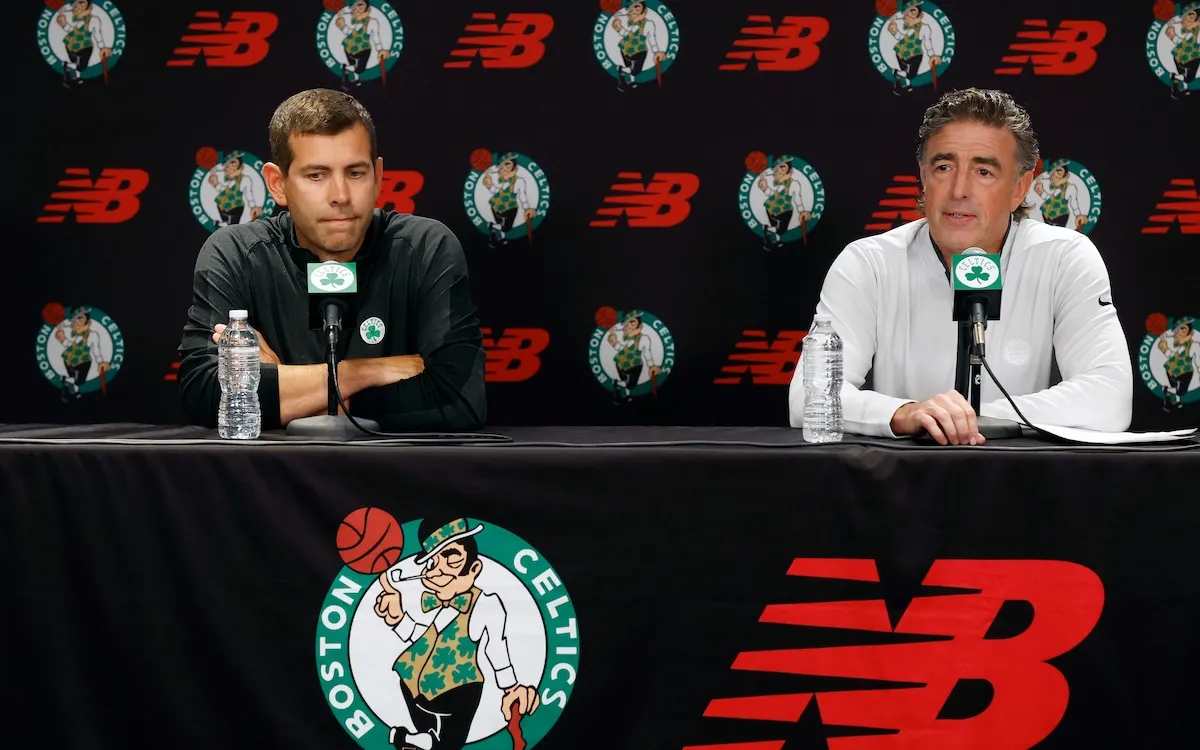
The Boston Celtics are facing a challenging offseason filled with crucial decisions, especially after the recent injury to their All-Star forward, Jayson Tatum. This setback occurred during a game in New York, leaving the team on the brink of elimination and forcing management to reconsider their strategies for the future. With Tatum's injury prognosis still unclear, the Celtics are left to ponder their options as they navigate through this tumultuous period.
Tatum's injury comes at a time when the Celtics' title aspirations seem to be fading. If the prognosis indicates a lengthy recovery period, the team must prepare for a future without their star player. The uncertainty surrounding Tatum's health raises several questions about the team's direction and potential roster changes. As the offseason approaches, Boston must evaluate how to cope with this significant loss while planning for the long term.
In the NBA, teams facing the challenge of an injured player can apply for a disabled player exception (DPE). This allows them to replace an injured player under specific conditions. To qualify, an NBA-designated physician must confirm that the player is likely to be out for the entire season. The Celtics previously utilized this exception when Gordon Hayward suffered a serious injury in 2018, but they would only pursue a DPE for Tatum if they were certain he would miss at least 12 months.
While the DPE could provide some relief, it is important to note that it would not replace a superstar like Tatum. With Tatum's salary at $54.1 million, the DPE cap is considerably lower, offering a maximum of $14.1 million. This limited financial flexibility, combined with Boston's hefty payroll, makes it challenging for the Celtics to effectively use this exception without significant cost-cutting measures.
The Celtics are currently projected to have a staggering $231 million in payroll committed to just 11 players for the upcoming season, including Tatum. This figure is approximately $24 million over the second apron and nearly $40 million above the luxury tax threshold. Here’s a breakdown of key player salaries:
Jayson Tatum: $54.1 million Jaylen Brown: $53.1 million Jrue Holiday: $32.4 million Kristaps Porzingis: $30.7 million Derrick White: $28.1 million Sam Hauser: $10 million Payton Pritchard: $7.2 million Baylor Scheierman: $2.6 million Xavier Tillman: $2.5 million Neemias Queta: $2.3 million Jordan Walsh: $2.2 million (non-guaranteed) First round draft pick: $2.5 millionGiven this financial landscape, the Celtics face a tough reality. They can only utilize their own draft picks and offer minimum contracts to free agents due to their position relative to the salary cap. While trades are an option, they cannot aggregate salaries, making it difficult to pull off significant deals without shedding substantial payroll first.
The Celtics’ front office may need to consider a strategic reset. Reducing their payroll below the second apron ($207 million) would be prudent, and getting under the luxury tax threshold entirely ($187 million) could provide them with greater flexibility in future seasons. This would allow Boston to avoid the harsh repeater tax and open up more opportunities for trades and free agency in the coming years.
However, executing such a payroll reduction will not be an easy task. The Celtics will likely have to make several deals to cut costs unless they can entice other teams to take on large contracts, a scenario that is rarely straightforward. Brad Stevens, the Celtics' president of basketball operations, will have his work cut out for him as he navigates these decisions and looks for ways to build for the future in the absence of Tatum.
With Tatum's future uncertain, the Celtics may have to contemplate trading key players like Jaylen Brown, Jrue Holiday, Kristaps Porzingis, and Sam Hauser. A reset was inevitable after the team went all-in two summers ago, but Tatum's injury may accelerate this process. As the Celtics assess their roster and contemplate possible trades, they must balance the urgency of improving the team with the need for financial prudence.
In conclusion, the Boston Celtics are at a critical juncture as they face an uncertain offseason ahead. With Jayson Tatum's injury significantly impacting their roster and salary cap situation, the front office must be strategic in their decisions to ensure the team's long-term success while navigating the challenges of the current NBA landscape.